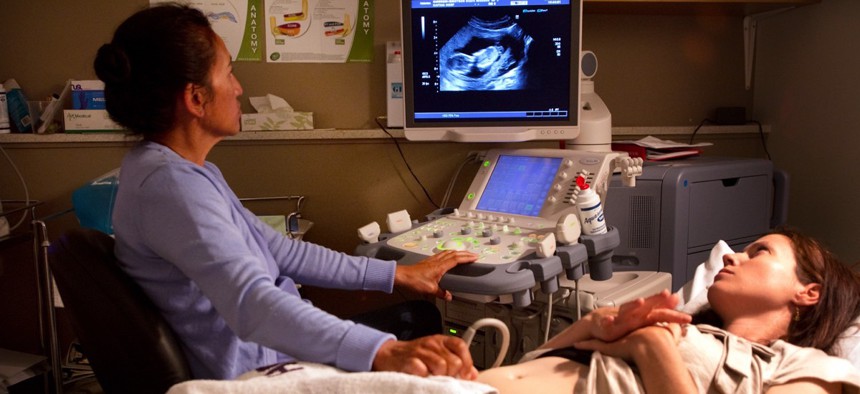Time Is Running Out for the 370,000 Pregnant Women Who Get Health Care Through CHIP


Connecting state and local government leaders
In Minnesota, officials would be forced to choose between terminating care for expectant mothers and breaking federal law should Congress let Children's Health Insurance Program funding expire.
About 370,000 pregnant women, who earn too much money to qualify for Medicaid but too little to afford private health insurance, annually rely on the Children’s Health Insurance Program to ensure their own health and that of their unborn children.
It takes an act of Congress to renew the federal funding for this program. The deadline for this action is less than three days away. If Congress doesn't act, it’s only a matter of time before states run out of money to keep CHIP afloat. In a handful of states, the forecast is particularly dire.
Minnesota is one of those states.
As Emily Piper, the commissioner of the state’s Department of Human Services, wrote in an op-ed in the Star Tribune, Minnesota is scheduled to exhaust its CHIP funding, $115 million, at the end of this month. If, or when, that happens, expectant mothers are at risk of having their health coverage cut off altogether.
Minnesota’s program currently pays for the prenatal and postpartum treatment of roughly 1,700 low-income pregnant women through a state plan option to cover the care for unborn children from conception to birth.
Losing their CHIP coverage means these women would have to rely on Emergency Medical Assistance to receive health care. Under that system, only their labor and delivery costs and medical emergencies would be covered. They would wave goodbye to prenatal and postpartum care along with any other health services. Studies have shown that inadequate prenatal care is associated with increased risk of premature birth, stillbirth and infant death.
Officials in Minnesota are trying their best to work creatively to come up with some sort of stopgap that would prevent them from having to terminate the coverage for these women.
If Congress does not have a plan in place by Oct. 1, the state’s Department of Human Services estimates that they would be able to continue their comprehensive coverage of expectant mothers for up to nine months—a poignantly apt period of time. They would do so by carrying over CHIP funds from fiscal year 2017.
However, this action also means the state would be in violation of a federal rule and comes with a $10 million penalty. To Piper, that penalty is “an expensive result of congressional inaction but better than terminating coverage altogether.”
According to one Senate staffer, who spoke with Route Fifty via email on background, Congress is still working to chart the path forward on CHIP.
They have less than 72 hours to chart that path and then walk it.
PREVIOUSLY on Route Fifty:
Quinn Libson is a Staff Correspondent for Government Executive’s Route Fifty.

NEXT STORY: How Sky-High Housing Costs Make California the Poorest State





